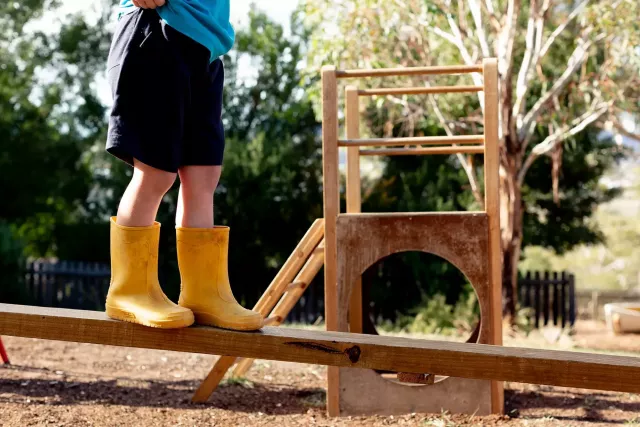
Feature Story: ACC Distance Education Program
Australian Christian College has recently unveiled an exciting new Distance Education program.
Distance education offers students an alternative approach for education that is flexible to their personal circumstances. This program is one of many great programs that look to facilitate the ability to learn remotely. We were fortunate enough to talk with Martin Howell from Australian Christian College Launceston about this program.


Hello Marty,
What has been the greatest challenge in developing a quality distance education program?
Thankfully, ACC Launceston is part of a national group of schools with significant experience and expertise in distance education. If we were an independent school that wasn’t part of a group, we would have had to develop an online curriculum from scratch and work through a range of other related considerations such as selection of an LMS to ensuring decent internet speeds for our teachers. Further, we would have had to learn and then teach our distance education teachers how to adapt their pedagogy for online delivery. However, in our case, this specific expertise already existed in-house so it was only a matter of ‘editing’ for state-specific changes.
What are you most excited about, when it comes to the adoption of distance education programs in education?
The adoption of distance education in Australia provides parents with another schooling option. Providing parents with greater choice is a good thing, because parents know their children best. While regular school suits most children, it doesn’t suit them all. Distance education provides an option between regular school and home schooling.
Technology has advanced considerably over the past decade. Faster home internet speeds, more reliable personal computers and mobile devices, and more sophisticated learning management systems means that the distance education experience can be more learning-centric and less technology-centric. The technology needs to serve the learning, not the other way around.
I think the collective experience that we shared during the covid lockdowns helped us to identify that Distance Education can really work for certain types of students. At the end of the day, we want a school system that is able to meet the needs of every student and Distance Education can definitely play a role.
What do you think is the greatest hurdle in providing quality distance education?
The greatest hurdle is in managing expectations around learning. When a student starts in distance education, they come into a new community and bring with them their attitudes and expectations around learning. Just because the learning is delivered online and at-home doesn’t mean students can take it easy. Distance education is rigorous and teachers still have high learning expectations for their students.
At ACC, we spend a lot of time on the initial induction process and we have systems in place to check for student engagement. It is critical that the onsite supervisor (commonly one of the parents) works in partnership with the school to ensure student learning is occurring every school day.
How has COVID-19 impacted the way you and your team teach? What did you learn from this time?
Thankfully, we didn’t experience in Tasmania what other schools had to face across Australia. The key lesson for us has been around planning for continuity of learning. Whether on-campus or online we want our students ready and able to engage in learning from the start of every school day.
The other key thing has been around the intentional start of the Distance Education program. We’ve recognised that there are some children who can benefit from online learning as a part of their overall school experience and we’re excited to help them.
How has technology shifted your approach in education in recent years?
There’s lots of different ways that technology has shifted our approach to education. In the wellbeing area, for example, students are able to communicate wellbeing issues through an app. There’s also the rise and rise of video content as a meaningful way to share knowledge and skills and the new tools that are coming out in the online learning space to help us build relationships with the students.
How do you satisfy yourself about the pastoral care and social wellbeing of your distance education students and ensure that they are ready for attendance at a school or college for their senior secondary education?
Pastoral care and social wellbeing is very important in any school community and it’s especially important for us as we work with students remotely. Our heart is captured in our motto: “well known, well taught, well loved.” On enrolment, we take time to understand where our students are coming from. A significant amount of our students suffer from anxiety due to incidents that have occurred prior to their enrolment in distance education.
Our program mirrors what you would expect to find in school with pastoral care groups, co-curricular programs, and the occasional regional excursion where appropriate. Our students love to talk about Minecraft just as much as students at recess time.
We also have internal systems for monitoring student wellbeing and engagement that we use when checking in with students such as EI Pulse which is an app where students can tell us how they are feeling and we can respond where needed.
In terms of moving back in to school, we’re thrilled when students can move back into a physical school. The Distance Education program supports student needs and choice — so we do our best to help students for as long as they need it.
In terms of matriculation to senior secondary, we have found that our Distance Education students are well equipped for the transition because they have been given the same skill set as their classmates and usually their capacity to communicate through digital means is superior due to their time in online learning.
Any further comments that you would like to add?
Thanks for the opportunity to talk with you today.